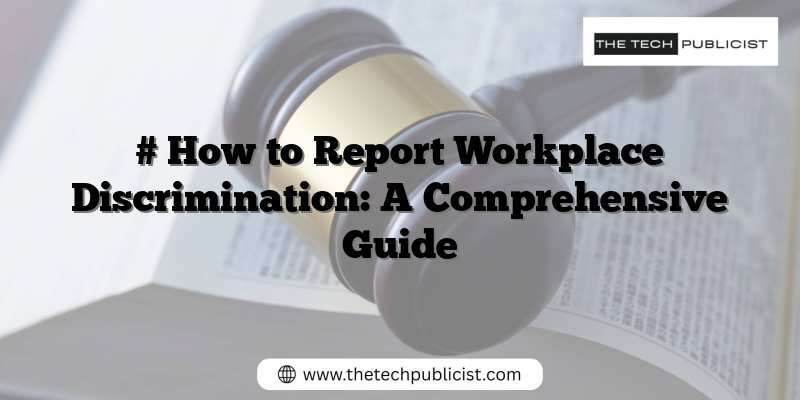What to Know / Key Takeaways
- California has introduced significant updates to its discrimination laws aimed at enhancing protection against workplace discrimination.
- The new legislation impacts various aspects, including processes for filing complaints and potential penalties for violations.
- Key areas of focus include discrimination based on gender identity, sexual orientation, and other protected classes.
- Employers are required to implement training programs to ensure compliance and promote an inclusive workplace environment.
- Victims of discrimination now have expanded rights to seek justice and compensation.
Understanding the New Discrimination Law
The recent amendments to California’s discrimination laws mark a pivotal shift in how workplace discrimination is addressed in the state. These changes reflect a growing societal awareness and commitment to creating an equitable workplace for all employees. Below, we explore the critical components of this legislation.
Background of Discrimination Laws in California
California has long been at the forefront of anti-discrimination legislation, with the Fair Employment and Housing Act (FEHA) serving as a cornerstone for protecting employees’ rights. The recent updates to this law have broadened protections and clarified the processes available to individuals experiencing discrimination.
Key Provisions of the New Law
The updated discrimination law encompasses several critical provisions that aim to increase protections for discriminated individuals.
Enhanced Protections for Specific Groups
One of the primary aims of the new legislation is to enhance protections for marginalized groups, specifically targeting discrimination based on:
- Gender identity
- Sexual orientation
- Race
- Disability
- Age
These expansions in protected classes strengthen California’s commitment to fostering a diverse and inclusive workforce.
Filing Complaints: A Streamlined Process
The amendment introduces a more efficient process for employees to file complaints against discriminatory practices. This includes clearer guidelines for what constitutes discrimination and the steps individuals must follow to report incidents. As a result, employees can navigate the legal landscape with more confidence.
Increased Penalties for Violations
To deter discriminatory practices, the law imposes stricter penalties on employers who violate these provisions. This enhances accountability and encourages employers to prioritize compliance, ultimately fostering a healthier work environment.
Employer Responsibilities
With these new regulations, employers hold greater responsibility in cultivating non-discriminatory workplaces.
Mandatory Training Programs
Employers are required to implement training sessions focused on diversity, equity, and inclusion. These programs not only educate employees about their rights but also instill a sense of respect and understanding among co-workers, reducing instances of discrimination.
Regular Policy Review
California’s new law encourages employers to regularly review and update their internal policies regarding discrimination. This proactive approach ensures that organizations are not only compliant with the law but also actively promoting equality in the workplace.
Support for Victims
Victims of discrimination now possess increased rights to seek legal recourse. The changes empower individuals to pursue justice through state and federal channels, resulting in greater protection and potential compensation for those wronged.
Frequently Asked Questions
What constitutes workplace discrimination under the new law?
Workplace discrimination refers to unfair treatment based on an employee’s protected characteristics. This includes actions taken against an individual due to their race, gender identity, sexual orientation, age, or disability.
How can victims file a discrimination complaint in California?
Victims can file a complaint with the California Department of Fair Employment and Housing (DFEH) online or by contacting their local office. It’s essential to have detailed documentation of the incidents to support the claim.
Are there any financial repercussions for employers violating the law?
Yes, employers found in violation of the new discrimination law may face increased penalties, including fines and potential restitution for affected employees.
What should I do if I face discrimination at work?
If you experience discrimination, document the incidents and speak with your supervisor or HR department. If the issue persists, consider filing a formal complaint with the DFEH.
Can I seek legal assistance for discrimination claims?
Absolutely. Victims of discrimination are encouraged to seek legal advice to navigate their options. Engaging with professionals can provide clarity on rights and available resources.
Conclusion
California’s new discrimination law represents a significant step toward enhancing workplace equity. By understanding your rights and the responsibilities of employers, you can better navigate the complexities of workplace dynamics.
If you need immediate support or legal assistance regarding discrimination claims, we recommend reaching out to local law firms that specialize in employment law. They can provide tailored advice and support based on your situation and ensure your rights are protected.
For further reading, you may consult the California Department of Fair Employment and Housing for detailed information on discrimination laws, or visit Wikipedia for historical context on California’s anti-discrimination legislation.

Manali is the founder and editor of The Tech Publicist, a legal-focused blog dedicated to breaking down complex legal topics into plain, practical advice. With a passion for empowering everyday readers, Manali writes about personal rights, property laws, and real-world legal situations that matter. When not decoding the law one article at a time, Manali enjoys diving into tech trends and advocating for accessible legal education.




